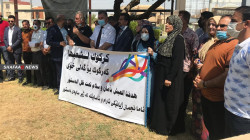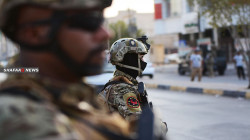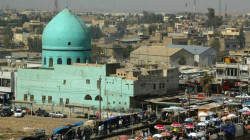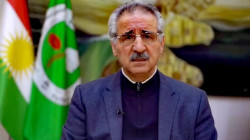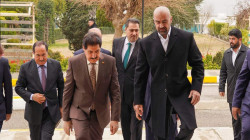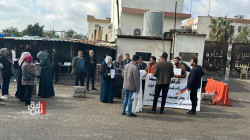Kurdish educators in Kirkuk move to secure salaries, demand Federalization
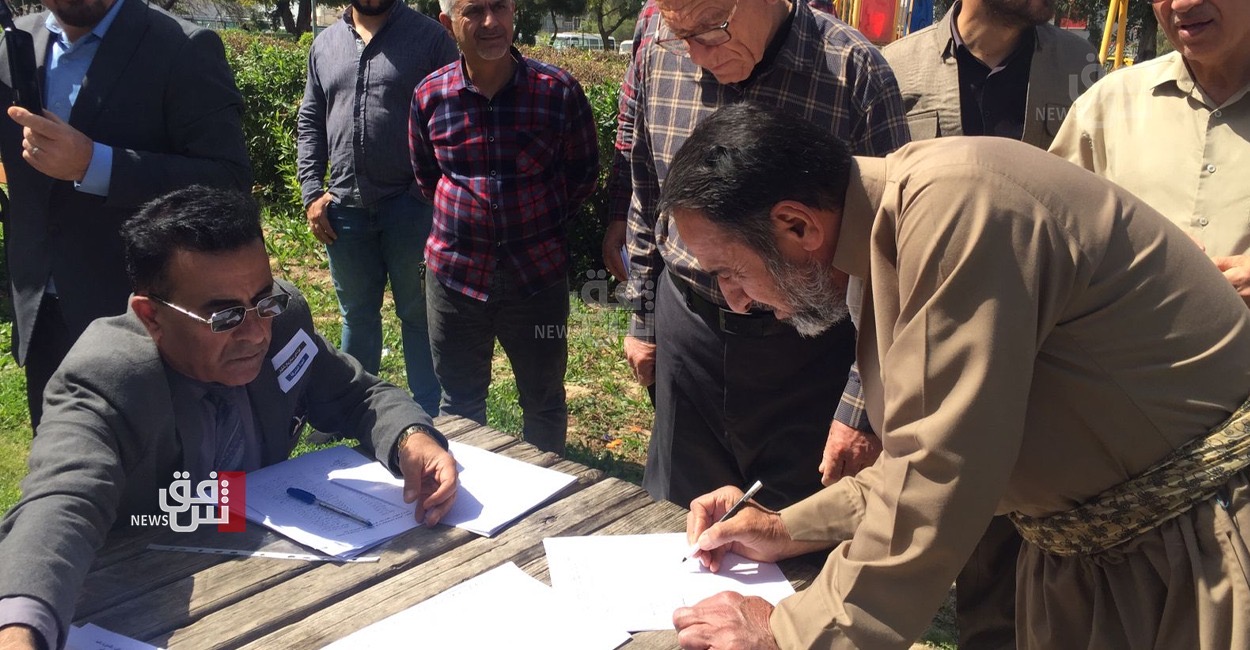
Shafaq News / Sitting at the Fine Arts Institute, Bazan Ahmed, a staff member, collects signatures from teachers and employees working in the Kurdish Studies Department to localize their salaries in Kirkuk's government banks. With the localization campaign, these teachers demand to preserve their dignity and seniority and avoid any political conflicts or problems.
Federal Localization
Bazan Ahmed, 40, spoke to Shafaq News agency, stating, "Hundreds of employees, teachers, and educators in the Kurdish Studies Department have launched a widespread campaign to collect signatures urging Baghdad to activate the Federal Court's decision to localize the salaries of Kurdistan Region employees in federal banks."
"We support the decision to localize our salaries in federal banks since Kirkuk and its banks are under the federal government's jurisdiction, making it easier than with other cities in the Kurdistan Region," Ahmed added
He emphasized that "the teaching profession is sacred, and the dignity and seniority of teachers and educators who have spent decades educating students must be preserved. For years, they have suffered from irregular salary payments, which is why you see hundreds of workers in the education sector gathering today, demanding salary localization."
Continuous Signatures
On her part, Nasreen Ahmed, a school director, stated, "Our message is clear: localizing salaries in government banks affiliated with the federal government, such as Rafidain and Rasheed banks, because if our salaries are linked to these banks, salary disbursement and work will be regular."
Ahmed explained that "the campaign to collect signatures will continue until we achieve our legitimate rights."
Statistics
Mohammed Khurshid, 45, a teacher, noted that "teachers and educators in the Kurdish Studies Department in Kirkuk have dedicated their years to educating all generations in various educational sciences. Therefore, the dignity and seniority of this group, which has spent the best years of its life serving Kurdish education, must be preserved."
According to a source in Kirkuk's Kurdish Studies Department, there are more than 100 educational supervisors, 2589 teachers, 3541 educators, and 1335 employees. The number of primary schools is 311, along with 40 kindergartens and three institutions, 29 elementary schools, 62 high schools, and 84 middle schools, with a total of 95,348 students.
Despite efforts to manage its fiscal situation, the KRG has consistently struggled to meet its salary obligations.
The Federal Supreme Court of Iraq's decision worsened the situation by issuing a ruling ordering the "localization" of salaries for all Kurdistan Region employees in federal banks. This decision has resulted in the halt of salary disbursements, leading to numerous strikes across various sectors.
Last year, the KRG managed to pay nine salaries to public employees, but this year, it has only been able to pay one salary so far.
The federal government disbursed around 600 billion dinars to cover the February salaries of KRG civil servants, excluding security forces. However, Erbil declined to accept the partial payment, insisting on receiving the total salary required. The KRG indicated that the received funds accounted for only about 60 percent of the total salary expenses, underscoring the ongoing financial strain and the challenges in meeting salary obligations for its workforce.
After a cabinet session, Kurdish Prime Minister Masrour Barzani said, "The federal government is ethically accountable for fulfilling its promises to ensure salary payments. We have fulfilled all our obligations and aim for this to mark a new phase of timely salary distribution."
